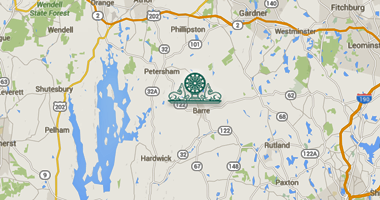Like many practitioners, I have always found the teachings about anattā—or selflessness—hard to fathom. And the experience of anattā has always seemed elusive to me. (If there’s no self, then who’s writing this sentence?) So last fall, when I saw that Narayan Liebenson Grady’s “old yogis” practice group at CIMC was about to take on the subject, I was intrigued.
The group, which has been meeting since 1994, is for people who have been practicing for three years or more, and who have some retreat experience along with a daily practice. Each weekly meeting includes meditation practice and discussion, either with the entire group or in small groups. And the discussion is usually about the previous week’s “homework.” These homework assignments are a key component of the curriculum.
Under Narayan’s guidance, the group has examined a variety of Buddhist teachings, including the Ten Paramis, the Noble Eight-Fold Path, the Four Foundations of Mindfulness, and the Four Brahma Vihāras. And as a more-or-less regular attendee, I’ve benefited from most of them. But what about anattā? Unlike these other topics, there’s no list associated with anattā, no built-in structure. Where would Narayan go with it? How could we spend a whole year on it? I was eager to find out.
What I came to see during the course of the year was that anattā is not quite as mysterious as I had imagined it to be. Narayan’s talks and homework assignments encouraged us to experience self/selflessness in practical terms, in the context of our daily lives—not as a lofty, esoteric teaching reserved for the meditation hall. For example, one assignment was to notice how often we compare ourselves to others, especially at work and in our families. Doing this exercise let me see how my sense of self is constantly shifting. First I’d be “better than,” then “worse than,” then “equal to.” Then back to “worse than.” But if the self were really so solid, how could I hold such differing and often contradictory views of it? Another related assignment was to be aware of the many ways we think of ourselves—”I am an anxious person,” “I am an angry person,” “I am a good person,” “I am a bad person”—and to see how these thoughts and self-images change from day to day, or even from moment to moment.
So do I fully understand anattā? Not by a long shot. But it does seem more accessible than it did a year ago.
By bringing these assignments to mind at least from time to time during the day, I was able to get a clearer sense of how fluid the self is. In the process, I also realized that anattā is really nothing special, that our various “selves” are continuously arising and passing away, and that in any given day, we have moments of anattā and moments of “selfing.” At the same time, I could feel the burden of self, and see how clinging to any sense of self—even a highly positive one—leads only to suffering. Of course, whatever insights I may have had were reinforced by sharing them with the group and by listening to others’ experiences—as well as to Narayan’s comments and feedback.
So do I fully understand anattā? Not by a long shot. But it does seem more accessible than it did a year ago. In fact, participating in the class has helped me see that it’s not something to be attained in the distant future. It’s right here, all the time. And fortunately, the topic has proven to be such a rich one that the “old yogis,” along with Narayan, will be exploring it for another year.
This article is one of a series of occasional submissions by long-term practitioners at Cambridge Insight Meditation Center. The purpose of this series is to highlight the ongoing practice sessions at CIMC and how these sessions are bringing new understanding and clarification to those enrolled in those sessions. These submissions have been approved by the guiding teachers at CIMC.


